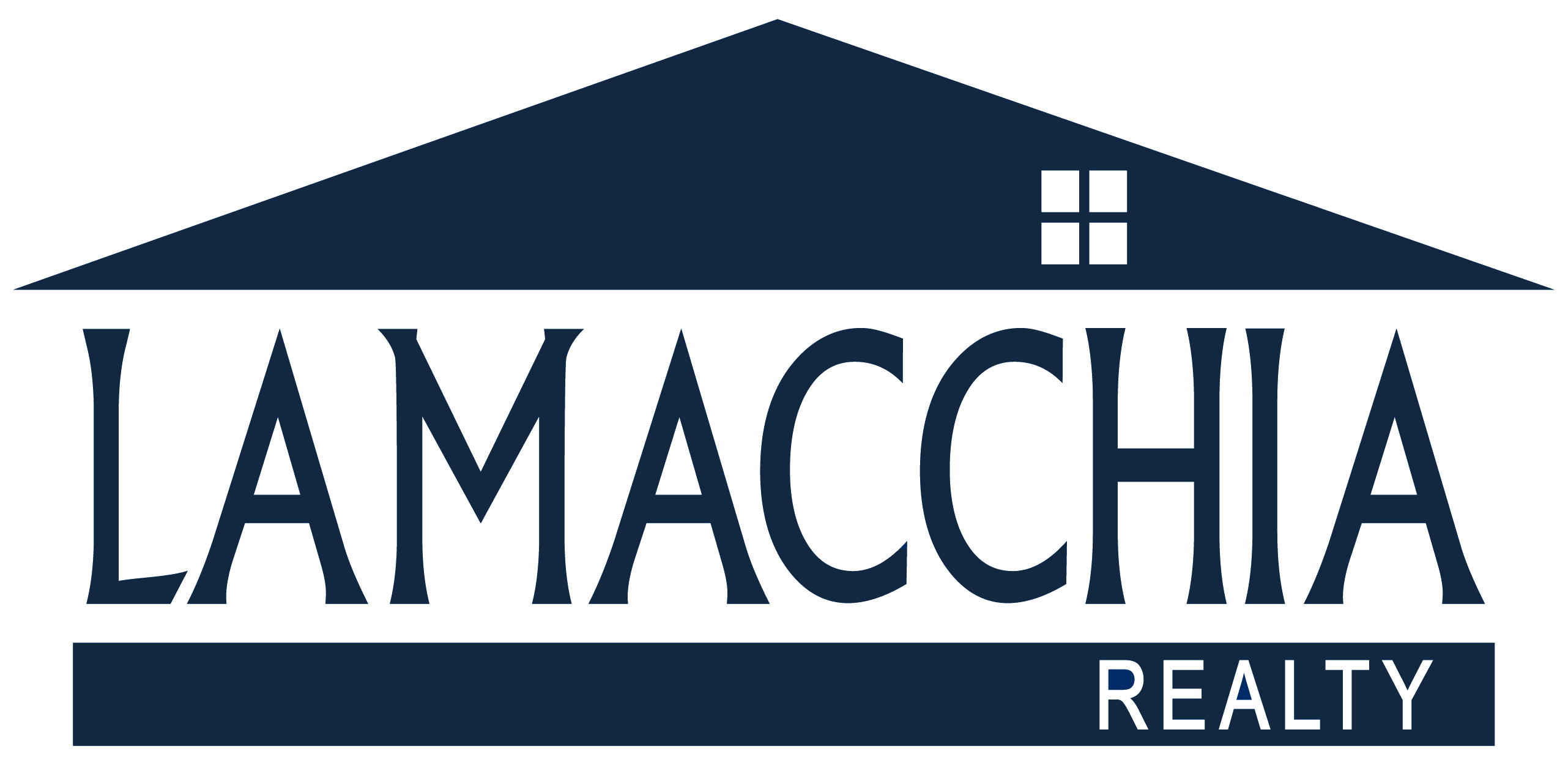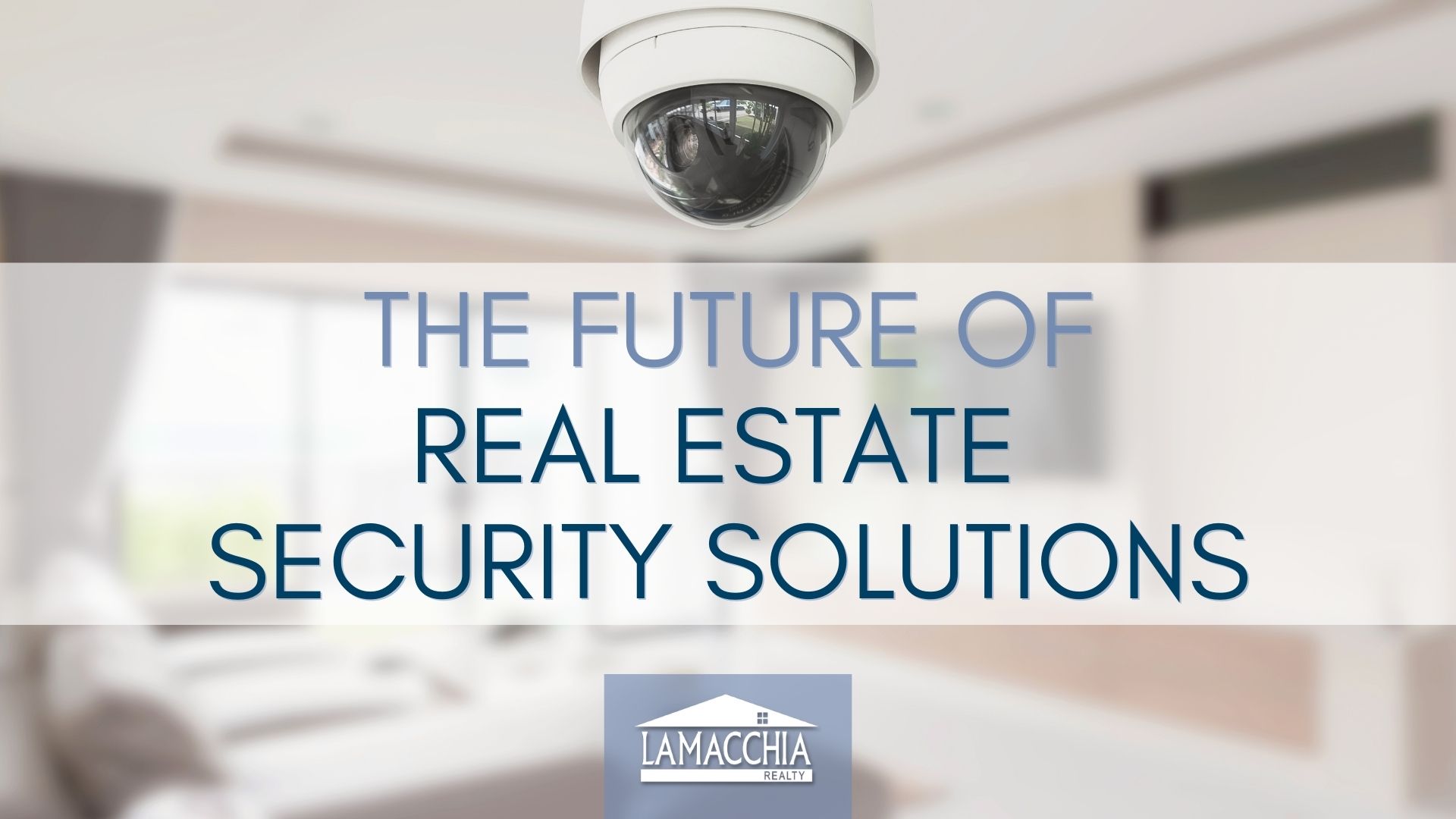
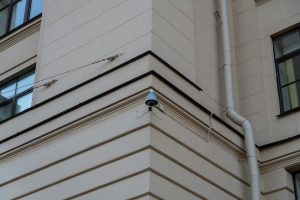 For many homeowners, ensuring the safety and security of their property is a top priority, with almost 50% of surveyed homeowners claiming home security is very important to them.
For many homeowners, ensuring the safety and security of their property is a top priority, with almost 50% of surveyed homeowners claiming home security is very important to them.
Well-designed and responsive security solutions can not only provide peace of mind, but also increase property values by as much as 5%, making real estate security solutions a key consideration for homeowners across all aspects of property ownership and management.
As technologies become more advanced, so do modern home security systems. To aid property owners in identifying and developing effective installations, the below post explores the future of real estate security solutions, their capabilities, and what components to look for.
The Rising Popularity of Smart Homes
Smart home technologies and real estate security systems share a lot of overlap, with many components of each sharing similar functionalities and working together to improve security.
Recently published data suggests 3 in 5 US consumers will adopt smart home technologies by the end of 2025, with almost 80% of homebuyers claiming they’d pay more for properties that come with useful smart devices, exemplifying the rising popularity of smart homes.
What Are Smart Home Technologies?
Smart home technologies are consumer-focused, typically internet-connected devices that can be used by homeowners to automatically control and adjust key aspects of their homes.
This can include lights, HVAC systems, appliances and even sophisticated security tools, enabling homeowners to manage their properties efficiently from a single networked device.
Common examples of smart home technologies include:
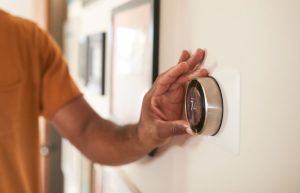 Appliances: Kitchen renovation experts help homeowners automate appliances like fridges, ovens and washers that can be controlled and managed from their phones.
Appliances: Kitchen renovation experts help homeowners automate appliances like fridges, ovens and washers that can be controlled and managed from their phones. - Smart locks: Digital locking systems can be attached to interior and exterior doors to help homeowners keep properties secure, even when they’re not physically present.
- Lighting systems: Smart light bulbs and lighting systems can be controlled remotely via cellphone apps, enabling homeowners to adjust lights from anywhere at any time.
- Thermostats: Smart heating systems are used to maintain set temperatures at all times, helping homeowners to save as much as 15% on heating and cooling costs.
The same components that control smart home technologies (internet-connected actuators and digital management platforms) are also central to modern real estate security solutions. So, the rising popularity of smart home technologies sets the foundation for the future of real estate security solutions, suggesting automation and remote-accessibility will be prioritized.
The Benefits of Integrated Security Systems
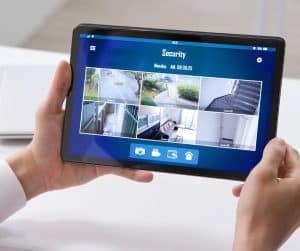 By applying the same principles behind smart home technology to real estate estate security, homeowners can develop intelligent, automated and remote-accessible security installations. Key devices like security cameras, locks and alarms can not only be managed remotely via a smartphone, but data from each device can be used to control the operation of the next.
By applying the same principles behind smart home technology to real estate estate security, homeowners can develop intelligent, automated and remote-accessible security installations. Key devices like security cameras, locks and alarms can not only be managed remotely via a smartphone, but data from each device can be used to control the operation of the next.
It’s for this reason that integrated smart systems represent the future of real estate security, offering homeowners the ability to respond to common threats immediately and intelligently.
For example, smart sound sensors can be programmed to detect noise at unusual hours and instruct CCTV cameras to automatically flag relevant footage, enabling homeowners to both address security incidents and instances where HOA rules that must be followed are broken.
Other examples of effective real estate security system integrations include:
- Time-based locks: Smart locks linked to time-based sensors can be used to ensure external access points are secured after a certain hour or distinct periods of inactivity.
- Intelligent alarms: Motion, sound and pressure sensors can be linked to alarms and CCTV systems, allowing for unique responses designed to address different threats.
- Smart intercoms: CCTV cameras can be linked to locks and intercoms, enabling residents to visually and verbally confirm who is requesting access to their properties.
By linking real estate security devices together in a similar way to smart home technologies, homeowners gain the freedom to program entirely unique security responses. What’s more is that once the foundation for a smart security system is built, adjustments can be made to address new risks or meet new owners’ needs, adding permanent functionality to the home.
How AI is Transforming Real Estate Security
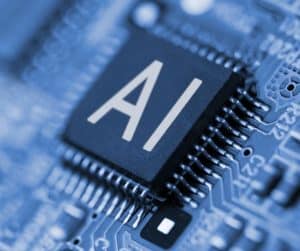 Like many other modern pursuits, real estate security is also being transformed by emerging AI technologies, giving some indications of what’s to be expected in future security solutions. Primarily, AI tools are being used to improve the accuracy and efficiency of security devices like cameras and alarms, using machine learning and advanced analytics to continuously monitor security data and identify anomalies that could suggest an emerging security threat.
Like many other modern pursuits, real estate security is also being transformed by emerging AI technologies, giving some indications of what’s to be expected in future security solutions. Primarily, AI tools are being used to improve the accuracy and efficiency of security devices like cameras and alarms, using machine learning and advanced analytics to continuously monitor security data and identify anomalies that could suggest an emerging security threat.
When combined with integrated security systems, AI analytics tools can help homeowners address unique issues and better-understand location-specific threats, meaning future real estate security solutions will be both accessible and proactive to help ensure 24/7 protection.
Wrapping Up
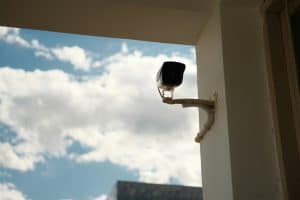 Security consistently ranks as a top priority for homeowners, so understanding what makes an effective and future-proof real estate security solution is important for all property owners.
Security consistently ranks as a top priority for homeowners, so understanding what makes an effective and future-proof real estate security solution is important for all property owners.
The rising popularity of smart home technologies offers some insight into the future of real estate security solutions, helping homeowners to adjust, manage and automate key devices and security responses remotely to meet unique needs and address emerging security risks.
When coupled with modern AI tools, smart, integrated real estate security solutions can help homeowners ensure their properties are well-protected at all times and under all conditions, adding significant value to modern homes and representing the future of real estate security.
